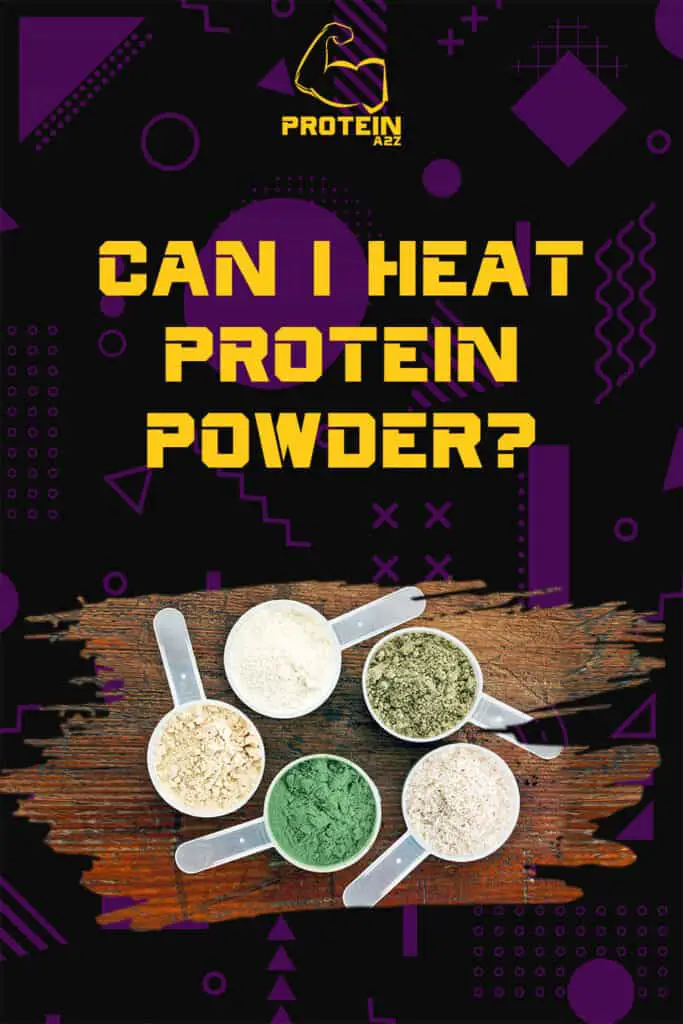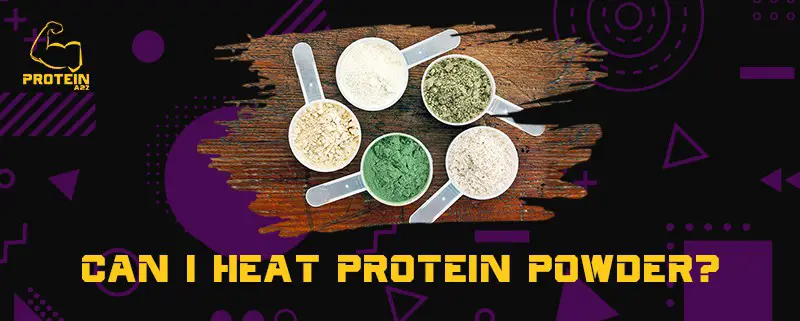Protein powder comes in different flavors and types and, in addition to drinking it as a shake, all of them can be used in cooking. But does protein powder undergo any drastic changes when heated?
You can heat protein powder without it losing any nutritional value. It goes through the denaturing process, but still has the same healthy benefits and can be used for baking. Heating protein powder makes is harder to dissolve in liquids.
Table of Contents
What happens when you heat protein powder?
Protein powder is derived from food sources. Depending on the type of protein powder, it might be extracted from eggs, soy, cow milk or beef. All these are foods that we eat after being cooked. Therefore, protein does not lose any nutritional value when heated.
The process that it undergoes under hotter temperatures is called denaturing. This means the protein powder molecules break apart into the essential amino acids it is made out of. Protein does not get damaged by the heat and our bodies receive the same nutritional value after consuming the same amount of protein, regardless of it being heated or not.
Consuming denatured protein means our bodies can absorb the protein more easily, as the same process happens in our bodies when we consume protein.
On the other hand, despite protein’s nutritional value not being ruined by heat, its ability to dissolve into liquids might get affected. Protein powder’s solubility can get damaged, depending on the temperature.
Using protein powder in baked goods and hot chocolate
There is no reason to heat protein powder alone. If you want to make hot chocolate, for example, it is a good idea to not heat the protein powder itself but only the milk or water and later on mixing them together. The reason for this is the aforementioned fact that protein might lose its solubility due to high temperatures.
Protein powder can be heated without being damaged in any way if it is used in cooking baked goods as a partial substitute to flour. You can find a ton of recipes, including protein powder muffins, pancakes, cookies and more, if you wish to increase your daily intake by injecting it into some tasty snacks.
How do other processes affect protein powder?
Will protein powder get damaged if you freeze it?
If frozen for prolonged periods of time, protein powder might lose some of its functionality. The nutritional value will not get damaged unless frozen and unfrozen quickly. On the other hand, you can freeze smoothies or protein shakes if needed. Refrigerated protein shakes can be kept for up to 72 hours, although it is not recommended to keep them for more than 24.
Can you microwave a protein shake?
You can microwave a protein shake, and it will not lose any nutritional value. The only side effect that might happen is to denature the protein and make it lose some of its solubility, meaning it will be harder to dissolve into water or milk.
Does frying do anything to protein powder?
Frying protein powder has little to no effect on protein powder, although there is little reason for it. In cooking, protein is mainly used to substitute flour in baked goods and is rarely used in frying. Protein does not lose any of its nutritional values when heated in any form, unless in very extreme conditions.


